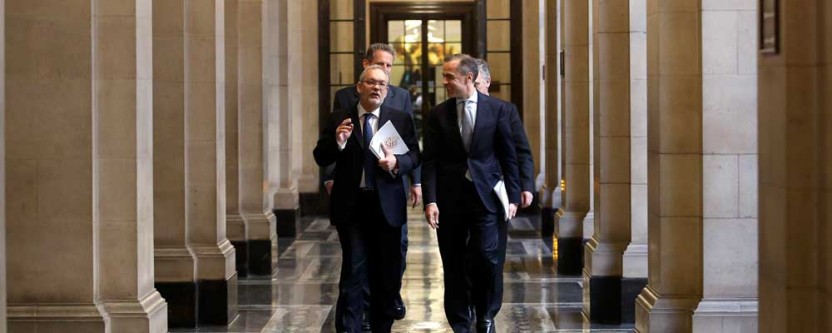
Bank consortium R3CEV successfully tests Bitcoin tech in traditional bank transactions
By Nicky Capella for The Stack magazine,
R3CEV, a startup dedicated to bringing blockchain technology to traditional finance, yesterday ran a successful test of transactions between 11 of the world’s largest financial institutions. This represents a big step forward in bringing blockchain, the foundation for Bitcoin, to traditional banking.
The test, which connected the banks on a private ‘distributed ledger’ using Microsoft’s cloud-based Azure service, allowed participants to execute sample financial transactions instantly, globally, and without a centralized third-party clearing house.
Distributed ledger technology, the legitimized term for blockchain tech in the finance industry, has seen a groundswell of interest in recent months. R3CEV announced its first members less than six months ago, and already has 42 members in its consortium, including some of the largest financial institutions in the world. For example, yesterday’s test involved Barclays, BMO Financial, Credit Suisse, Commonwealth Bank of Australia, HSBC, Natixis, Royal Bank of Scotland, TD Bank, UBS, UniCredit and Wells Fargo.
In a blog post last September, Tim Swanson, Director of Market Research at R3CEVembraced blockchain while distancing the company from Bitcoin. “R3 is not a Bitcoin company nor a cryptocurrency company. We are not seeking to build a “better” or even a different type of virtual currency […] Bitcoin solves a set of problems for a niche group of individuals operating under certain security assumptions (e.g., cypherpunks not wanting to interface with banks or governments).” While Bitcoin used blockchain technology to circumvent traditional banking structures and allow peer-to-peer transactions over the internet, traditional banking is looking to use blockchain technology to rethink the structure of standard transactions.
Currently, banks use settlement and clearing houses as third-party checks and balances for transactions. A white paper presented by UBS for the 2016 World Economic Forum Annual Meeting, stated, “Blockchain applications could benefit firms that use them to automate processes securely, to cut out costly intermediaries, and to protect intellectual property.” By eliminating the labor-intensive ledger reconciliation process, and increasing transaction speed (from a possible 4 days under the current system to as little as 15 seconds), financial institutions could eliminate mid-level administrative labor and cut costs up to $20 billion per year.
Extended use of blockchain in finance has some major steps to overcome. Banking is a highly regulated industry, and as with driverless cars, the regulatory bodies are slow to cover new technology, especially technology that encompasses revolutionary changes to existing practices and procedures. However, with one successful test completed and more on the way, distributed ledger technology appears to be a valuable consideration in the future of globalized banking and finance.





